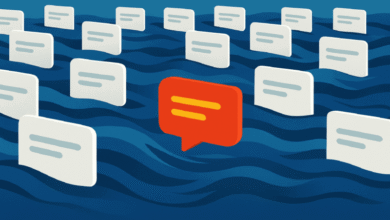Gen Z Job Market Shifts Due to AI, Says LinkedIn COO

▼ Summary
– Generative AI is reshaping entry-level employment, but LinkedIn’s COO Dan Shapero believes the career ladder isn’t broken yet, though adaptation will be key.
– AI’s impact on work is pervasive, unlike past tech waves, changing how entry-level tasks are performed rather than eliminating jobs entirely.
– AI fluency will become a core hiring attribute, with candidates expected to demonstrate comfort using AI tools and driving change.
– LinkedIn is using AI to automate repetitive recruitment tasks, allowing recruiters to focus on human elements like relationship-building and judgment.
– The future of work will blend more technology with human judgment, requiring continuous learning and adaptability from workers.
The job market is undergoing a seismic shift as artificial intelligence reshapes entry-level roles and hiring practices. According to Dan Shapero, LinkedIn’s chief operating officer, this transformation isn’t about eliminating jobs but redefining them. While AI is disrupting traditional career paths, it’s also creating new opportunities for those willing to adapt.
Shapero, speaking at Cannes Lions, emphasized that AI’s impact on work will dominate discussions for years to come, affecting both businesses and individuals. He pointed out that landing a first job after college has grown more challenging, as noted by LinkedIn’s chief economic opportunity officer in a recent New York Times piece. Unlike past technological shifts that targeted specific sectors, AI is altering the entire employment landscape.
Entry-level tasks that once consumed hours, like compiling research or designing presentations, are now automated. Yet companies still hire fresh graduates, just for different responsibilities. Shapero recalled his early days at Bain, where consultants manually crafted slides before PowerPoint existed. Today, firms seek candidates who can leverage AI to enhance productivity rather than resist change.
AI fluency is fast becoming a must-have skill, Shapero predicts. Employers increasingly expect job seekers to demonstrate not just familiarity with AI tools but the ability to integrate them into workflows. The real hurdle isn’t technology, it’s training teams to harness it effectively. LinkedIn now prioritizes hiring for “AI fluency and agency”, blending technical know-how with problem-solving initiative.
Recruitment itself is evolving. AI handles repetitive tasks like drafting job descriptions and screening resumes, freeing recruiters to focus on relationship-building and decision-making. LinkedIn’s Hiring Assistant, launched last year, helps uncover overlooked talent by moving beyond biased search habits. Ironically, AI may promote diversity by reducing human biases in hiring.
Despite automation’s rise, human judgment remains irreplaceable. Shapero envisions a hybrid future where technology and interpersonal skills coexist. The key to thriving? Continuous learning. “You don’t need to invent new methods,” he says, “but you must stay informed, embrace best practices, and adapt quickly.” For Gen Z and beyond, success will hinge on flexibility and a willingness to evolve alongside AI.
(Source: Fortune)

